Beating the Summer Slump with Digital Play!
Summer is a welcome break from the rigor of school for most kids. They might busy themselves with summer camps, vacations, adventures, free play, and time with family and friends. […]
Focus is the thinking skill that allows people to begin a task without procrastination and then maintain their attention and effort until the task is complete. Focus helps people pay attention in the midst of distractions and setbacks and to sustain the effort and energy needed to reach a goal.
For example, a child would be using good Focus skills when sitting down to begin an essay and then diligently writing until the assignment is done without getting distracted by the television, Internet, or friends.
Video games can help improve Focus by allowing kids to practice their focusing skills while in the midst of a fun and immersive gaming experience. Many games, particularly fast-paced action games, require sustained focus, attention, and effort in order to “beat” levels and to be successful in the game.
Watch the video to learn more about how video games can help your child improve their Focus thinking skill.
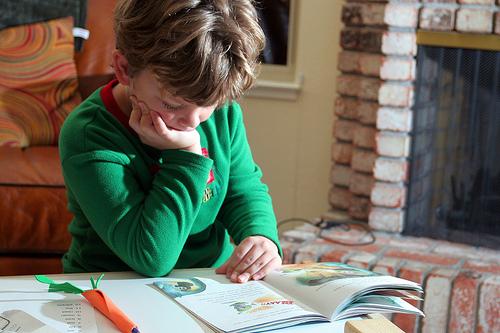
Focus is one of the most important thinking skills for academic success, as it helps kids begin tasks without procrastinating, maintain their attention in the presence of distractions, and continue tasks through to completion. Focus is very helpful when children are engaged in activities that require sustained practice in order to improve, and it is useful for developing the skills needed for playing an instrument or learning a new sport.
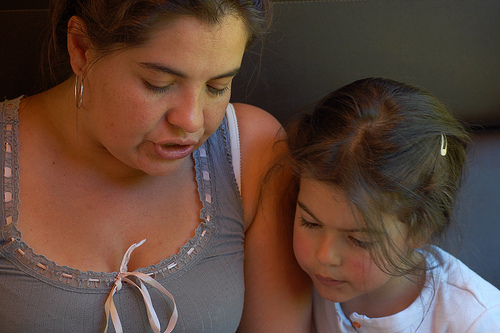 These are some general strategies and ideas for helping kids to improve their Focus skills.
These are some general strategies and ideas for helping kids to improve their Focus skills.
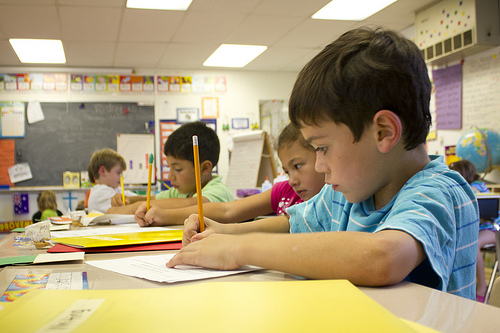
Focus is a core skill for learning academic skills and school-based information. If students cannot sustain their attention and effort on a task, they are likely to encounter a great deal of difficulty when learning complex material. Before students can ace their next test or apply other thinking skills such as Organization and Working Memory, they need to be able to tune out distractions and pay attention to what they are being taught in the classroom.
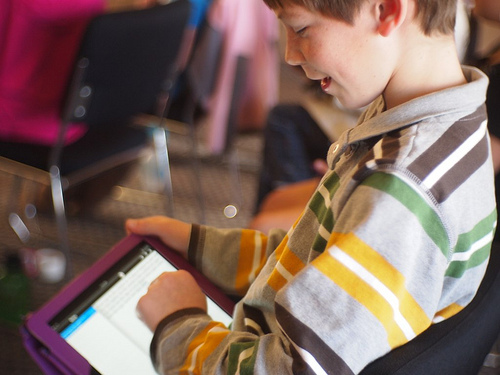 Playing video games, searching the Internet, trying out the newest app, or Facebooking a friend demands a variety of Thinking Skills. Proficiency with any of these digital tools requires the ability to apply skills such as Planning, Organization, Working Memory, or Self-Awareness. For children, the attraction of video games and technologies makes them an ideal teaching tool for practicing game-based skills and learning to apply them to school and daily activities.
Playing video games, searching the Internet, trying out the newest app, or Facebooking a friend demands a variety of Thinking Skills. Proficiency with any of these digital tools requires the ability to apply skills such as Planning, Organization, Working Memory, or Self-Awareness. For children, the attraction of video games and technologies makes them an ideal teaching tool for practicing game-based skills and learning to apply them to school and daily activities.
Focus is a helpful skill in many types of video games. For example, in fast-moving games such as racing or action games, players must often attend simultaneously to multiple events in order to avoid danger. In slow-moving games, players often need to pay attention to small details which may be relevant for success at later levels. Sustained focus and effort are also needed for many of the more complex, multi-layered games where players are likely to encounter obstacles to reach their goals.
Interactive digital media can be a great tool for enhancing focus in children who might otherwise find it extremely difficult. For example, some children are better able to focus on a reading assignment using an e-reader rather than a paperbound book. In other settings, a multi-media presentation of information, such as a website video, may also help to sustain a child’s attention.
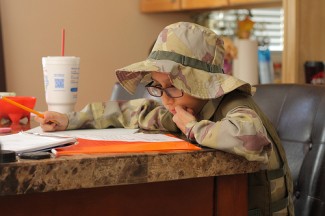 The thinking skill of focus is a compilation of three executive skills identified in Dawson and Guare’s model. It consists of sustained attention, which Dawson and Guare describe as “the capacity to attend to a situation or task in spite of distractibility”; task initiation, which Dawson and Guare describe as “the ability to begin a task in a timely fashion”; and goal-directed persistence, which Dawson and Guare describe as “the capacity or drive to follow through to completion of a goal and not be put off by other demands or competing interests.” The Learning Works for Kids thinking skill of focus combines these three components into a skill identifiable by parents and educators as the capacity to get started on a task and sustain one’s attention and effort to complete the task.
The thinking skill of focus is a compilation of three executive skills identified in Dawson and Guare’s model. It consists of sustained attention, which Dawson and Guare describe as “the capacity to attend to a situation or task in spite of distractibility”; task initiation, which Dawson and Guare describe as “the ability to begin a task in a timely fashion”; and goal-directed persistence, which Dawson and Guare describe as “the capacity or drive to follow through to completion of a goal and not be put off by other demands or competing interests.” The Learning Works for Kids thinking skill of focus combines these three components into a skill identifiable by parents and educators as the capacity to get started on a task and sustain one’s attention and effort to complete the task.
As an executive function, focus requires the ability to avoid daydreaming and quickly become tuned into a task, knowing how and where to start on it. It then involves remaining attentive to the task and ignoring other distractions or interests. In order to complete the task, persistence and sustained effort are necessary. Focus helps children to get started on their homework, and also to complete it competently and in an efficient manner. It helps children to clean their rooms in 30 minutes, rather than in 6 hours. Focus is a primary and necessary component for learning in any environment. If one is unable to start paying attention and sustain one’s focus, one is unlikely to be able to learn effectively.
Assessing the executive function of focus involves determining how well children are able to begin tasks on their own and remain attentive throughout completion of the task. The LearningWorks for Kids Thinking Skills Assessment is based on the Executive Skills Questionnaire (ESQ), which measures focus primarily by assessing concerns regarding boredom, daydreaming, the capacity to transition from one task to another, and how effectively children are able to complete tasks such as chores, homework, or projects without interruption.
Summer is a welcome break from the rigor of school for most kids. They might busy themselves with summer camps, vacations, adventures, free play, and time with family and friends. […]
The Legend of Zelda: Tears of the Kingdom, the latest installment of the famed adventure game franchise, is set to be released on Friday, May 12, 2023. At LearningWorks […]
If you’ve heard that executive functions cannot change over time, you’d be wrong! Executive functions are plastic, which means that they can indeed be improved through a number of unique […]
All membership plans come with full access to our entire suite of tools learning guides, and resources. Here are a few of the ones we think you’ll like the most: